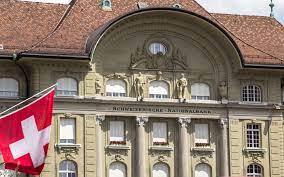
Reuters – Switzerland has a problem that some countries, like Turkey, would dearly love: what to do with a massive pile of foreign reserves.
After years of intervening in the currency markets to limit franc strength, the Swiss National Bank has amassed reserves of more than $1 trillion, an amount that’s more than the country’s GDP. A group of academics on Wednesday suggested taking some of the money from the central bank and putting it into a sovereign wealth fund, like Norway’s, which would invest for the long run and could therefore buy less liquid and higher returning assets than the central bank can hold.
The academics are right that the SNB, like its global peers, prefers to own liquid assets that can be sold easily, even in periods of financial stress. Nevertheless, it is one of the rare central banks that invests in shares, including those of companies like Apple, Microsoft and Google-owner Alphabet and risky credit, rather than confining itself to holding foreign currencies and foreign government bonds. A breakdown of its asset allocation at end-September showed 23% parked in equities.
A sovereign wealth fund would therefore have to take on a lot more risk to beat the SNB’s current returns, leaving itself vulnerable to big losses if turmoil were to hit financial markets. And there would be a host of other questions to answer, such as whether investments should align with green-friendly values at a time when governments around the world are trying to combat climate change.
Investing in illiquid assets might also make the SNB’s life harder in future. A sovereign wealth fund may struggle to quickly liquidate such holdings and hand money back to the central bank if the SNB ever needed to engage in massive intervention to support the franc. The academics point out that this has not happened for decades, barring some brief and limited episodes, and that the SNB could retain substantial foreign currency investments as a precaution.
Even so, the central bank rejected the idea and said on Wednesday that withdrawal of foreign exchange reserves would constitute an interference in its independence. While Swiss politicians could disregard this view, they would still struggle to find a way to both increase returns and keep adequate reserves for potential interventions. Rich country problems are still problems.

